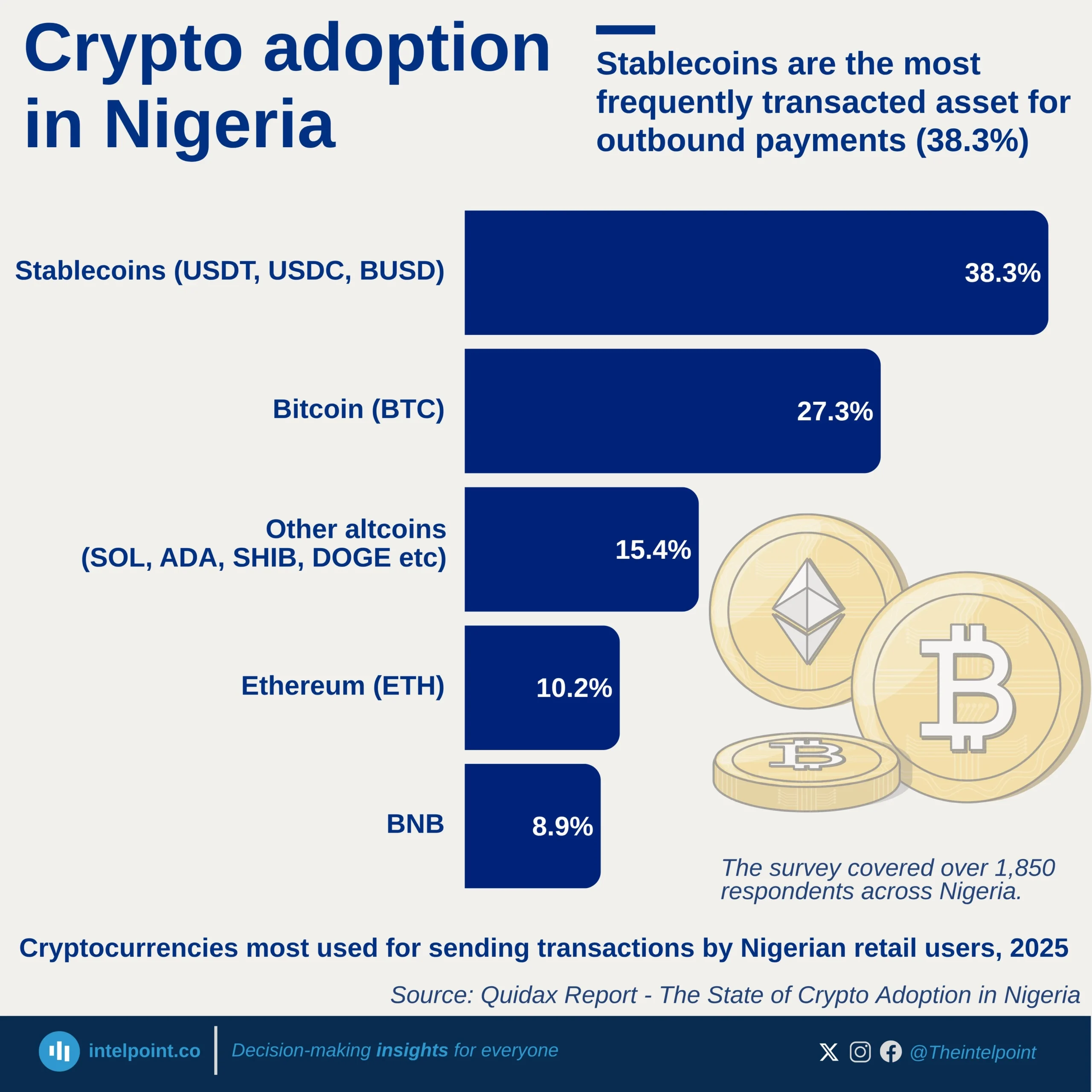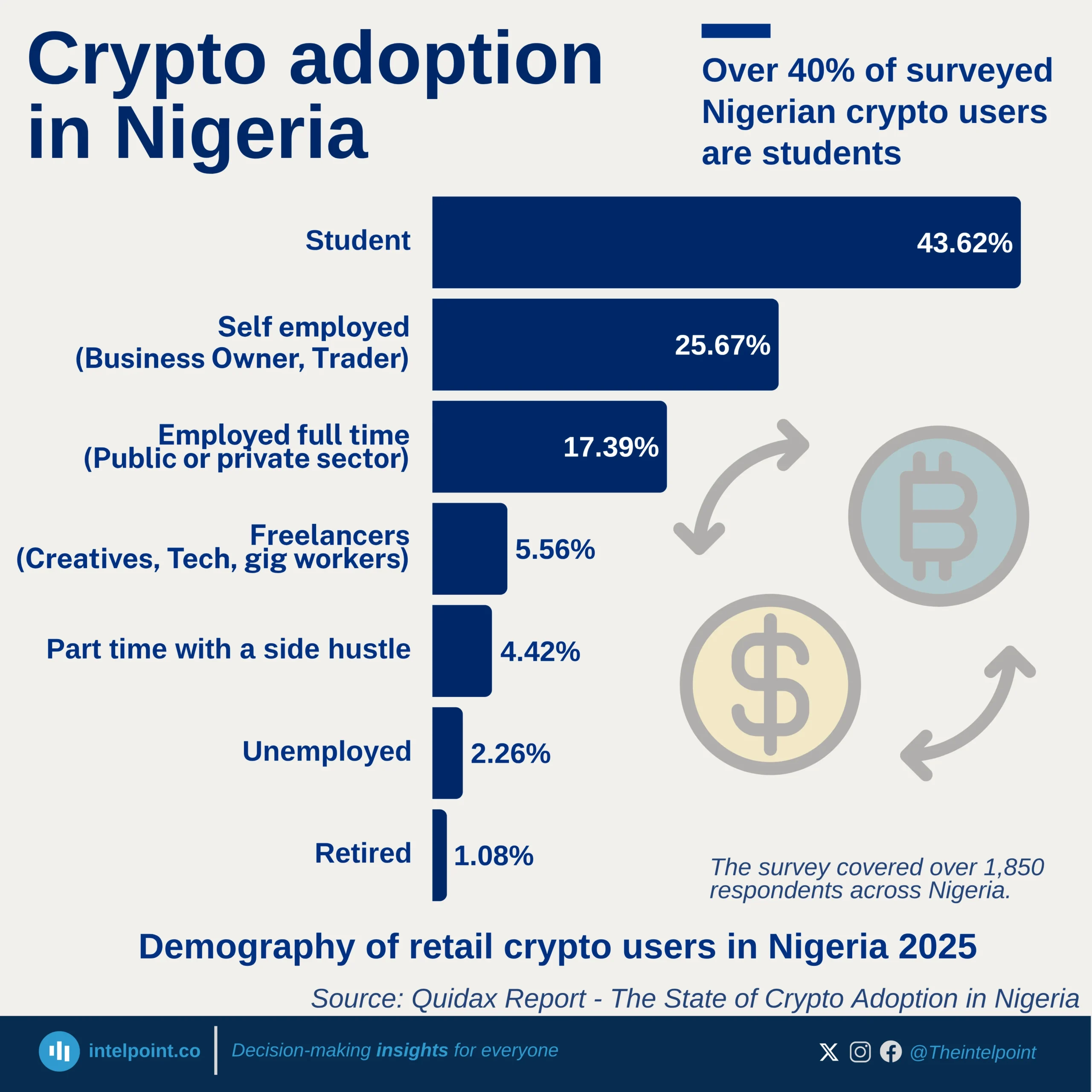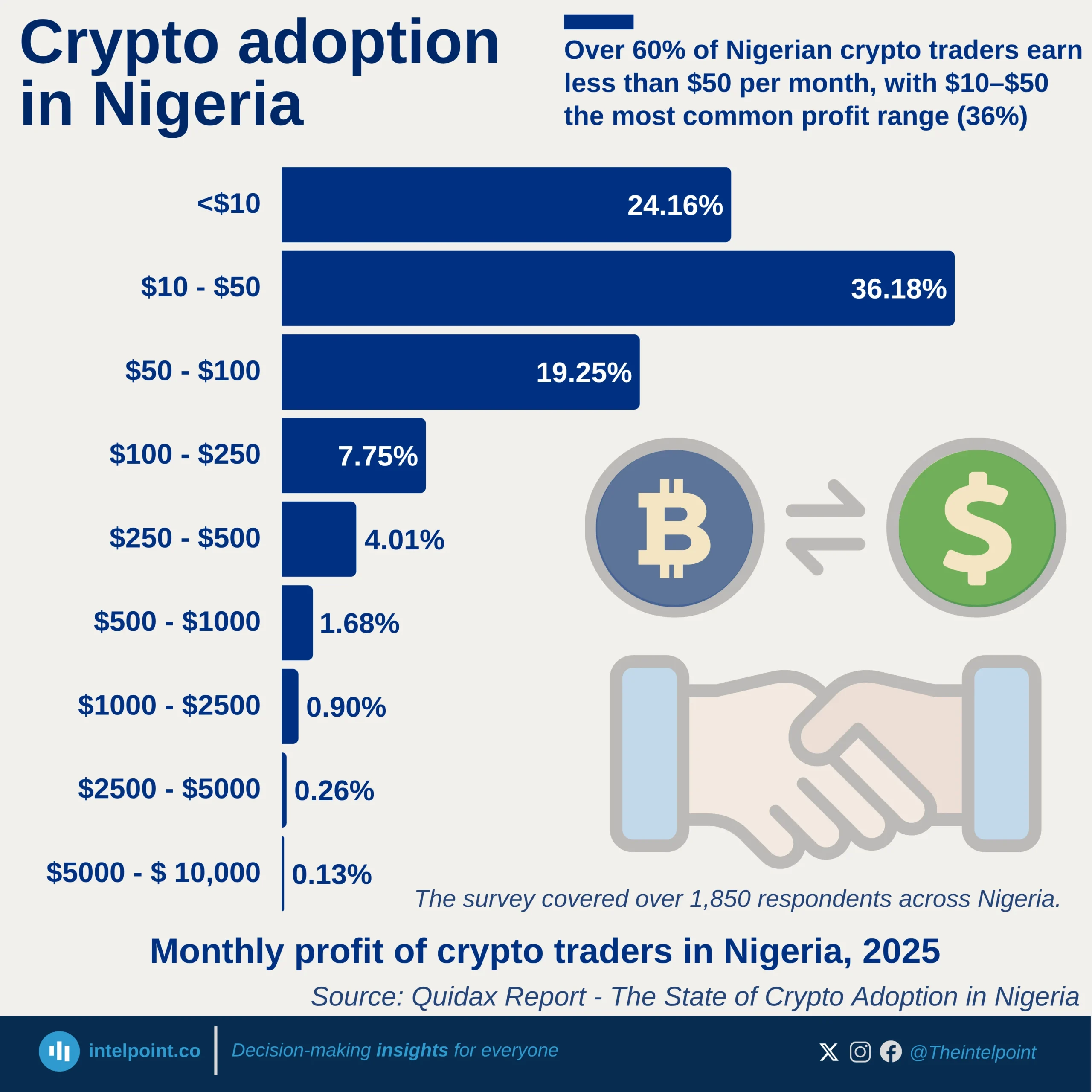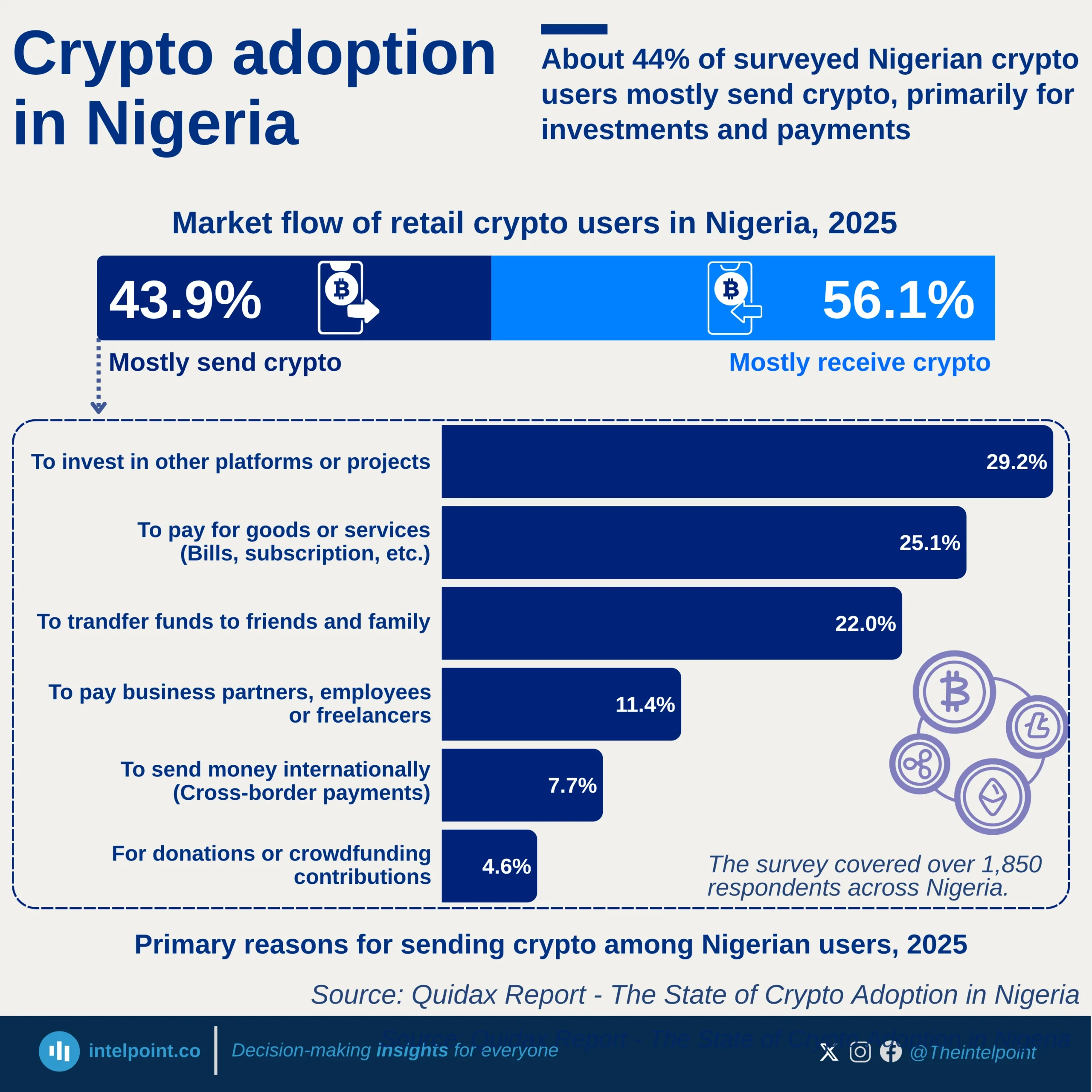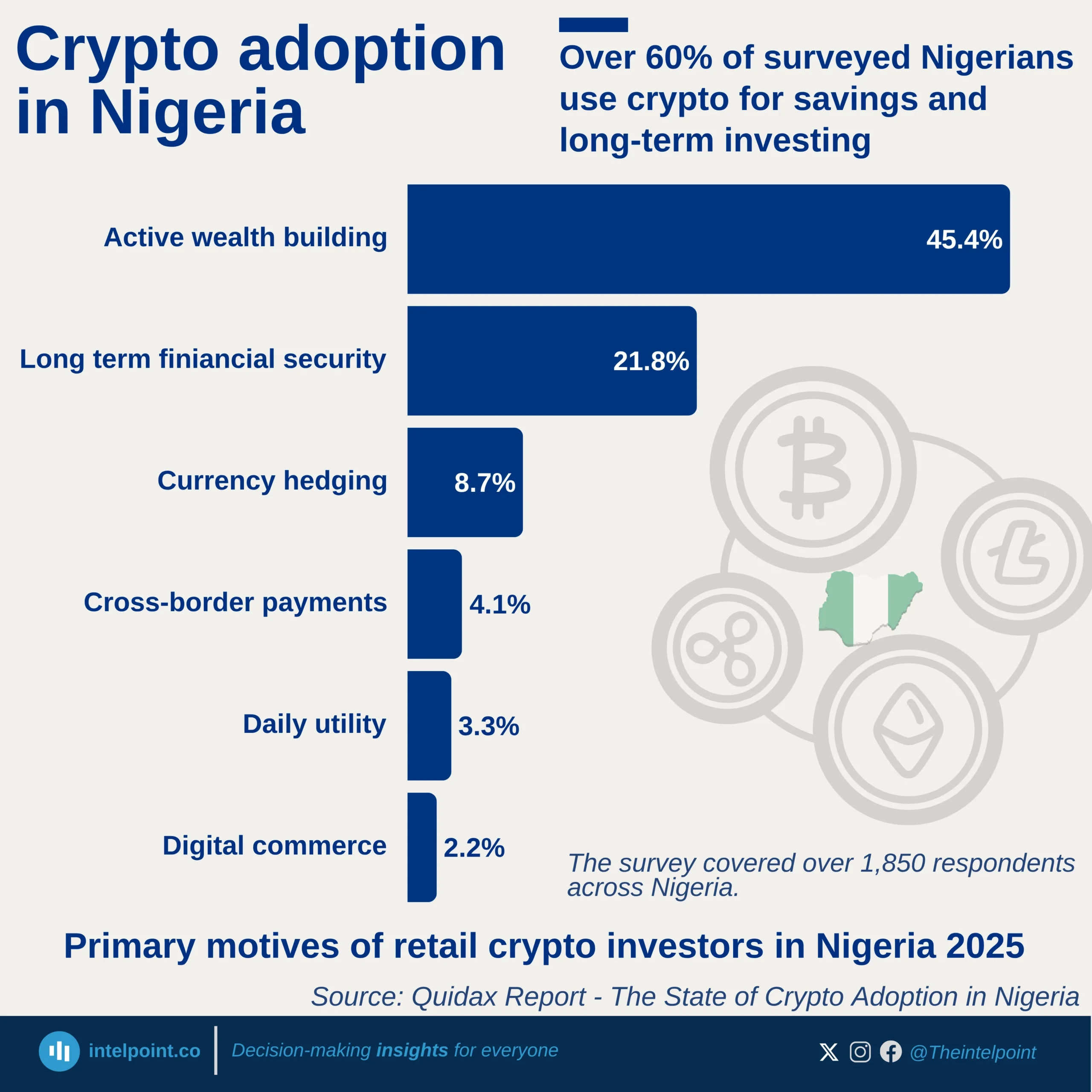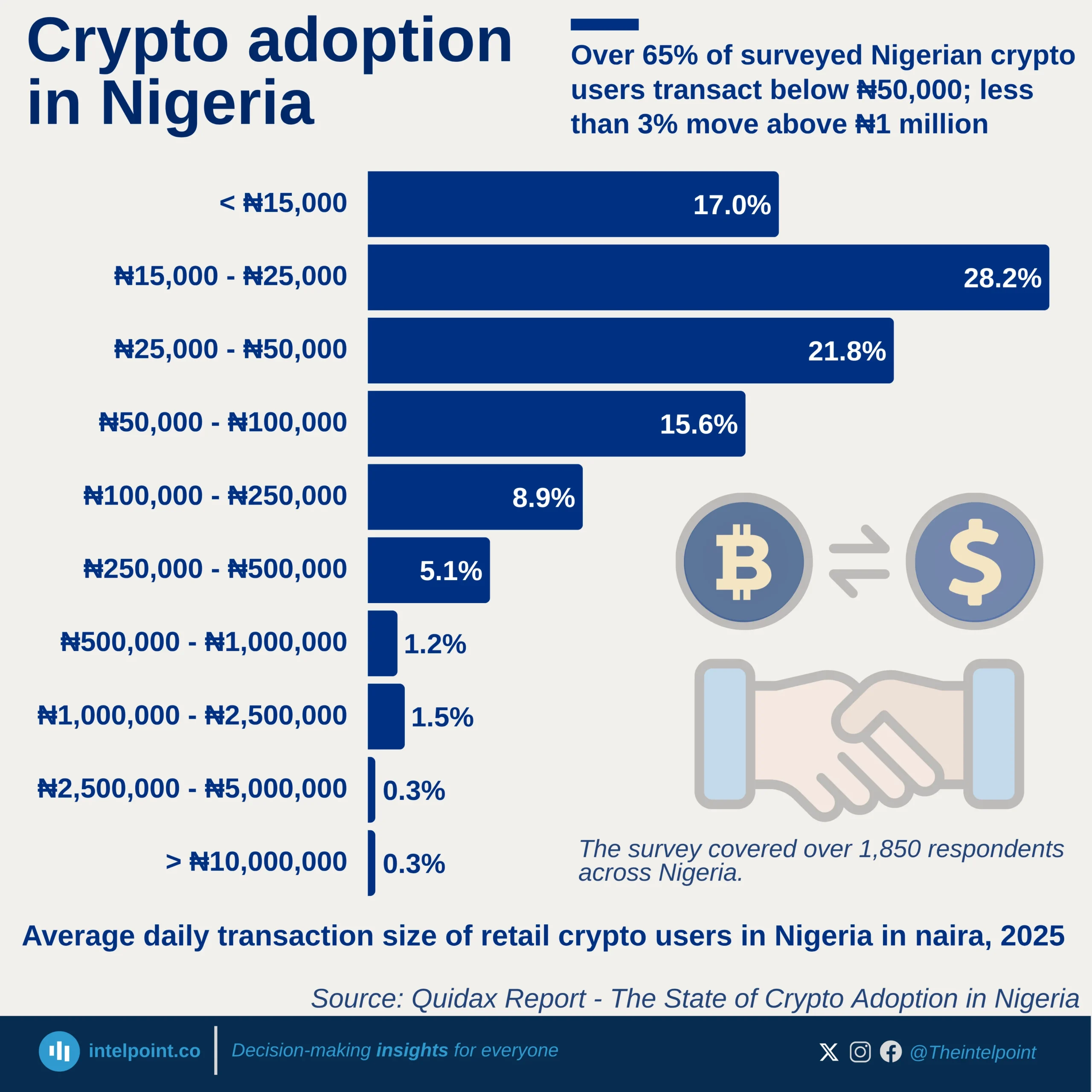As of 2024, 6.8% of the global population (562M people) own cryptocurrency, but ownership remains unevenly distributed by gender. Men make up 61% of crypto holders (342.8M), while women account for 39% (219.2M ). While female adoption is growing, crypto remains a male-dominated space, reflecting trends seen in other tech and finance sectors. However, with increasing awareness, financial inclusion efforts, and educational initiatives, narrowing the gender gap could be a major driver for future crypto adoption worldwide.
